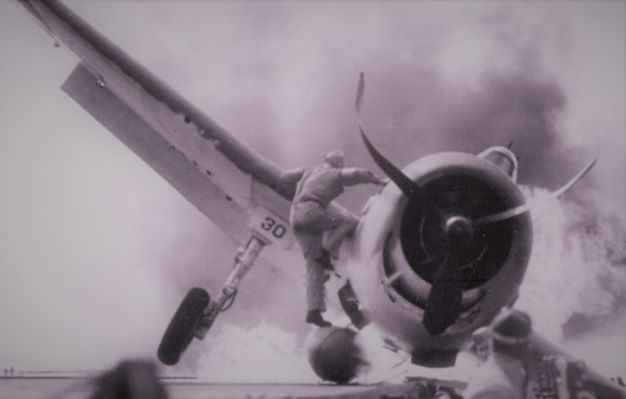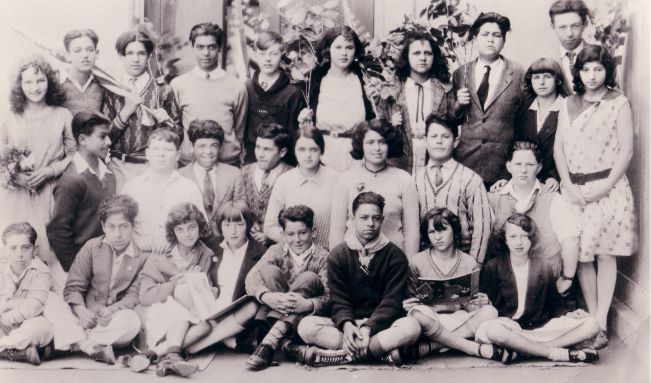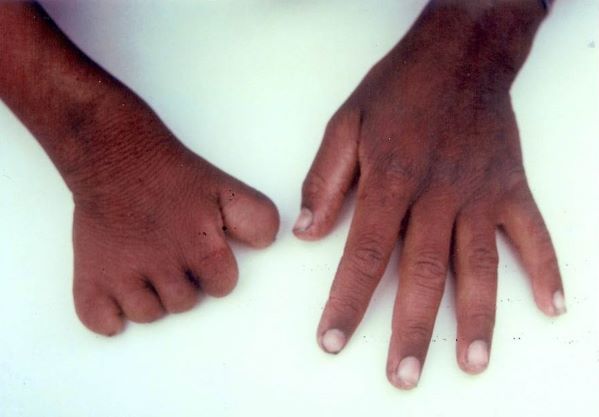The Question of Past-Life Memories
 Dr. Jim B. Tucker will speak on “Children’s Memories of Previous Lives” at Lifetime Learning‘s More Than the Score event on Saturday, October 27 at 10:00 a.m. at Alumni Hall. Dr. Tucker is the Bonner-Lowry Professor of Psychiatry and Neurobehavioral Sciences and Director, Division of Perceptual Studies at the University of Virginia Health Systems. He is the author of Life Before Life: A Scientific Investigation of Children’s Memories of Previous Lives and Return to Life: Extraordinary Cases of Children Who Remember Past Lives.
Dr. Jim B. Tucker will speak on “Children’s Memories of Previous Lives” at Lifetime Learning‘s More Than the Score event on Saturday, October 27 at 10:00 a.m. at Alumni Hall. Dr. Tucker is the Bonner-Lowry Professor of Psychiatry and Neurobehavioral Sciences and Director, Division of Perceptual Studies at the University of Virginia Health Systems. He is the author of Life Before Life: A Scientific Investigation of Children’s Memories of Previous Lives and Return to Life: Extraordinary Cases of Children Who Remember Past Lives.
The Question of Past-Life Memories
 For the last fifty years, the Division of Perceptual Studies, in the Department of Psychiatry and Neurobehavioral Sciences here at UVA, has been investigating phenomena that suggest that consciousness may survive death. One such phenomenon involves young children who report memories of a previous life. We have studied over 2,500 such cases, and in many of them, the child’s statements match specific details from the life of someone who died in the past. One young boy in Oklahoma made over fifty statements that were accurate for a man who died in California forty years before the child was born. Another had repeated nightmares beginning at the age of two about a terrifying plane crash. He gave numerous details that matched facts about a pilot who was killed in World War II, including the place where his plane was shot down, the name of the aircraft carrier he was flying off of, and the first and last name of another pilot he knew on the ship.
For the last fifty years, the Division of Perceptual Studies, in the Department of Psychiatry and Neurobehavioral Sciences here at UVA, has been investigating phenomena that suggest that consciousness may survive death. One such phenomenon involves young children who report memories of a previous life. We have studied over 2,500 such cases, and in many of them, the child’s statements match specific details from the life of someone who died in the past. One young boy in Oklahoma made over fifty statements that were accurate for a man who died in California forty years before the child was born. Another had repeated nightmares beginning at the age of two about a terrifying plane crash. He gave numerous details that matched facts about a pilot who was killed in World War II, including the place where his plane was shot down, the name of the aircraft carrier he was flying off of, and the first and last name of another pilot he knew on the ship.
Other children talk about lives that are much closer to home. Sam is a boy who was born a year and a half after his paternal grandfather died. When his father was changing his diaper one day, Sam looked up at him and said, “When I was your age, I used to change your diapers.” After that, he began saying that he had been his grandfather and gave various details. He said one time that his wife had made milkshakes for him every day, which was true of his grandparents, even stating accurately that she had used a food processor to make them instead of a blender. He talked another time about how his sister had been killed and “turned into a fish.” The grandfather’s sister had in fact been murdered some sixty years before, and her body was dumped in the bay. When he was four, his mother tested him by showing him a class picture from when his grandfather was in grammar school. The picture included twenty-seven children, sixteen of them boys, and Sam correctly picked out his grandfather.

Cases can be intriguing even when the children’s statements aren’t verifiable. One father from Canada emailed me about his daughter. He explained that he had always detested hockey, and he and his wife never talked about it or watched games on television. Their daughter Hannah showed no interest in hockey either—until one day when she was three years old. Out of the blue, she asked her father why her son didn’t come around to take her to hockey games anymore. He asked when her son had done this, and she said, “You know, Daddy, when I was an old lady.”
 Hannah asked about her son for a couple of months and seemed frustrated that he never visited. She said various things about him. She described him as skinny, with curly, red hair. Although Hannah’s parents were vegetarian and didn’t wear leather, she talked about how her son wore a leather coat that, based on where she pointed on her father as she told him about it, was three-quarter length. She said he drove a white car that was rusted in spots. She also used the word arena, which her father found remarkable, as Hannah had never been to an arena and he thought no one would have had a reason to discuss one around her. Hannah then stopped talking about her son and hockey games. When her father asked her about those things a few months later, she seemed to have no memory of them, and she never brought them up again as she progressed through childhood.
Hannah asked about her son for a couple of months and seemed frustrated that he never visited. She said various things about him. She described him as skinny, with curly, red hair. Although Hannah’s parents were vegetarian and didn’t wear leather, she talked about how her son wore a leather coat that, based on where she pointed on her father as she told him about it, was three-quarter length. She said he drove a white car that was rusted in spots. She also used the word arena, which her father found remarkable, as Hannah had never been to an arena and he thought no one would have had a reason to discuss one around her. Hannah then stopped talking about her son and hockey games. When her father asked her about those things a few months later, she seemed to have no memory of them, and she never brought them up again as she progressed through childhood.
Even though Hannah’s statements couldn’t be verified, I found them striking. What would possess a three-year-old, especially one whose family didn’t even like hockey, to imagine she had been an elderly woman wanting her son to take her to hockey games?
Other cases are far more detailed and go on for much longer. Some of the children get very emotional and cry for their previous families, sometimes on a daily basis. Some show other behaviors that appear connected to the memories they describe, such as phobias related to the mode of death or gender nonconformity when the past life was as a member of the opposite sex. And in cases involving a violent death, some of the children even have birthmarks or birth defects that match wounds, usually the fatal wounds, the previous person suffered. In one case, the previous boy had lost the fingers of his right hand in a fodder chopping machine. The boy who remembered his life was born with a completely normal left hand but only stubs for fingers on his right.

- Testing, Diagnosing, and Treating Primary Aldosteronism: A Leading Cause of Hard-to-Treat Hypertension
- Life at the Top: Climate Change in Utqiaġvik, Alaska
- The Only Thing We Have to Fear is Fear Itself
- UVA Club of Tidewater: Hoos at Harbor Park
- UVA Club of Washington, DC: Diplomacy & Dialogue with Ambassador Mull
- UVA Club of Washington DC: Wahoo Wednesday at Tap99